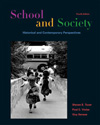1700s |
| 1773 | Phyllis
Wheatley, first African-American poet in America, bought from slave ship
as a young child |
| 1775 | Thomas Paine proposes civil and political rights for women
in Pennsylvania Magazine |
| 1777 | Abigail Adams, wife of President John Adams, writes that women
"will not hold ourselves bound by any laws in which we have no voice" |
| 1791 | French feminist Olympe de Gouges issues Declaration of the
Rights of Women and of the Citizen |
| 1792 | English feminist Mary Wollstonecraft writes A Vindication
of the Rights of Women |
| 1793 | Ex-slave
Katy Ferguson establishes a school for poor children of all races in New
York |
1800-1850 |
| 1811 | American
Educator Sarah Pierce publishes textbook for schools to make basic subjects
more interesting to students |
| 1819 | Emma Hart Willard (1787-1870) writes the classic appeal An
Address to the Public: Particularly to the Members of the Legislature of
New York, Proposing a Plan for Improving Female Education; though unsuccessful,
it defines the issue of women's education |
| 1820 | Susan B. Anthony born |
| 1821 | Emma Willard establishes
the Troy Female Seminary, the first school for women's higher education,
which turns out 200 teachers before the founding of the first teacher's
school for women in the United States For a more traditional site, click on
http://www.pinn.net/~sunshine/whm2001/willard1.html,
which provides more information about Willard. |
| 1824 | Teacher Sophia B. Packard opens a college for African-Americans
in Georgia |
| 1830 | Radical labor organizer "Mother" (Mary) Jones born |
| 1833 | Oberlin
is first U.S. coeducational college |
| 1838 | Mt.
Holyoke, first seminary for female teachers in United States, founded by
Mary Lyon in South Hadley, Massachusetts |
| 1846 | Catharine
Beecher publishes An Essay on Slavery
and Abolitionism with Reference to the Duty of American Women to their Country |
| 1848 | Seneca
Falls conference on women’s rights is led by American feminists Lucretia
Mott and Elizabeth Cady Stanton; not a single woman of color is present,
though Frederick Douglass addresses conference |
1850-1900 |
| 1850 | Clara Barton
founds one of New Jersey’s first “free,” or public, schools |
| 1851 | Sojourner
Truth delivers an unplanned fiery address (now known as “Ain’t I a Woman”)
at the Women’s Rights Conference in Akron, Ohio |
| 1852 | Harriet Beecher Stowe’s Uncle Tom’s Cabin, which portrays
the plight of slaves in highly emotional language, is published; in its
first year over 300,000 copies are sold |
| 1860 | First
English‑language kindergarten established in United States |
| 1860 | Birth
of Jane Addams |
| 1869 | National
Woman Suffrage Association is founded by Cady Stanton and Susan B. Anthony |
| 1869 | Female
lawyers are licensed in United States |
| 1877 | Helen
Magill White (1853–1944) earns a Ph.D. in Greek from Boston University,
the first woman to receive a Ph.D. from an American University |
| 1878 | U.S.
constitutional amendment to grant full voting rights to women is introduced
for the first time in Congress and every year thereafter until its passage
in 1920 |
1900-1920 |
| 1903 | American
educator Celestia Susannah Parish (1853–1918) founds and becomes first president
of the Southern Association of College Women |
| 1903 | American
educator and children’s rights advocate Julia Richman (1855–1912)
opens many schools in New York City for delinquents, chronic absentees,
and overage students as well as encouraging special classes for the mentally
and physically handicapped |
| 1904 | Mary
McLeod Bethune (1875–1955) founds a school for black girls in Daytona Beach,
Florida, which eventually becomes Bethune‑Cookman College See also: Some of My Best
Friends are Negro |
| 1904 | Susan
B. Anthony cofounds the International Woman Suffrage Alliance and is made
president of the International Leadership Conference in Berlin |
| 1913 | Five
thousand suffragettes march down Pennsylvania Avenue in Washington D.C.;
they are heckled and slapped; after this incident, suffragists are allowed
to present petitions in the U.S. Capitol for a constitutional amendment |
| 1914 | Women’s
Peace Parade is held in New York City to protest World War I |
| 1915 | Jane
Addams and Carrie Chapman Catt found Women’s Peace Party |
| 1916 | Margaret
Sanger forms New York Birth Control League |
| 1920 | League
of Woman Voters formed in Chicago to educate women in the use of the vote
and improve the economic, political, and social conditions of the country |
| 1920 | Nineteenth
Amendment is passed, giving women in the United States the right to vote |



 2002 McGraw-Hill Higher Education
2002 McGraw-Hill Higher Education